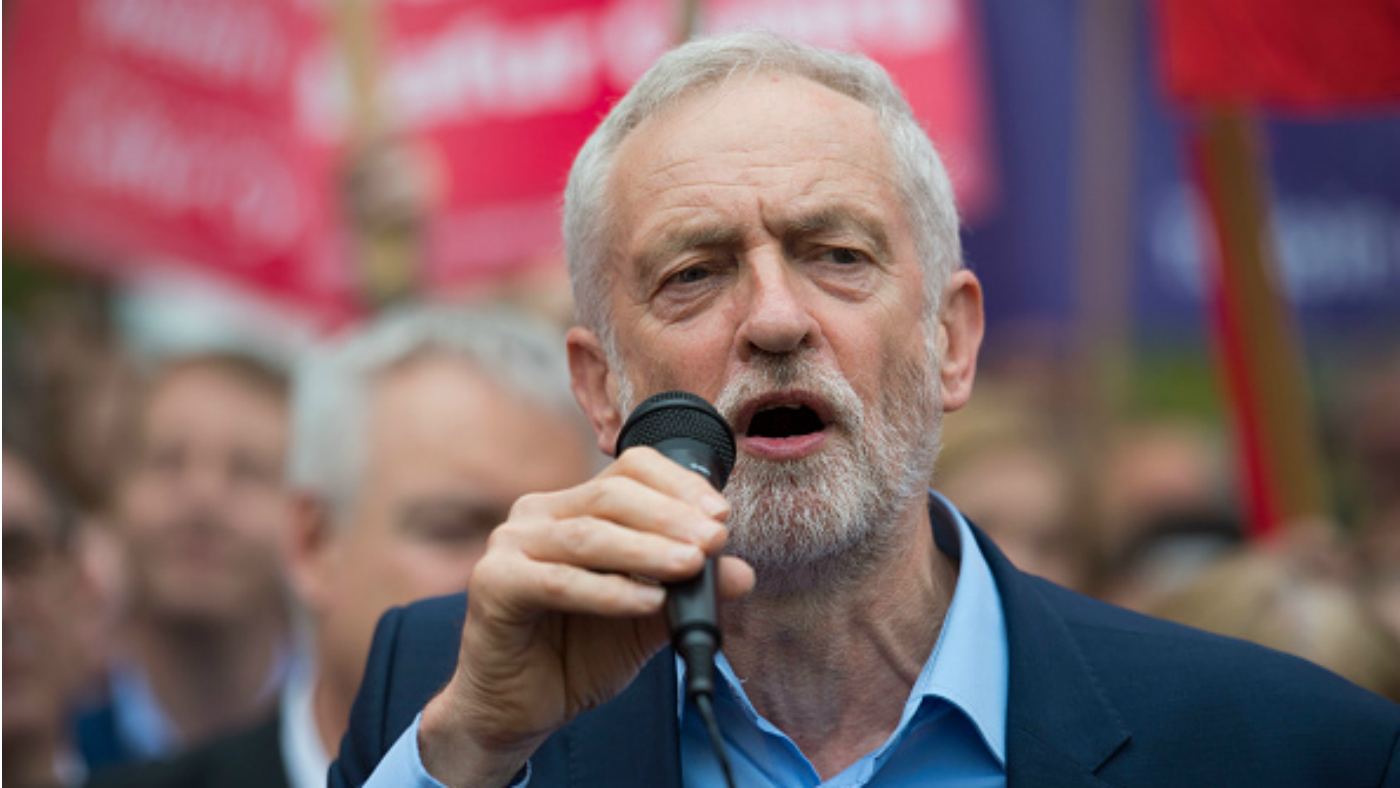Will Labour spend £300bn more on pensions?
We would not have to work for as long under Jeremy Corbyn's leaked plans, but who will pay in the end?

A free daily email with the biggest news stories of the day – and the best features from TheWeek.com
You are now subscribed
Your newsletter sign-up was successful
Jeremy Corbyn's Labour Party is sticking to the "belief that radical ideas will pull voters", says the Financial Times.
A draft manifesto leaked to the press this week, which was "signed… off without major changes", says the paper, reveals plans to renationalise the UK's "railways, mail delivery and the energy grid".
It also proposes £10bn to scrap tuition fees, to invest £6bn "each into the NHS and schools" and to raise £25bn in taxes by raising businesses taxes and income tax for higher earners.
The Week
Escape your echo chamber. Get the facts behind the news, plus analysis from multiple perspectives.

Sign up for The Week's Free Newsletters
From our morning news briefing to a weekly Good News Newsletter, get the best of The Week delivered directly to your inbox.
From our morning news briefing to a weekly Good News Newsletter, get the best of The Week delivered directly to your inbox.
But perhaps the most eye-catching headline in terms of sheer cost is the claim that is has pledged £300bn more for pensions.
So what has Labour promised?
£300bn more for pensions? Wow, that is a lot of money!
It is - but it is not per year. Labour has pledged to scrap planned increases in the state pension age, meaning the amount is the total cost relating to current over-18s in work now until they start to receive state payouts in roughly five decades' time.
A free daily email with the biggest news stories of the day – and the best features from TheWeek.com
The first additional cost begins to appear from 2028. Over the 40-or-so years in question, the amount equates to around £7.5bn a year. The annual costs would continue after that.
How has that been worked out?
The calculation is the work of Steve Webb, the former Liberal Democrat pensions minister who instigated the current policy of increasing the state pension age.
At the moment, men retire at 65 and women at 63. From 2028, that increases to 66 for both and will then increase to 67 between 2026 and 2028 and rise to 68 between 2046 and 2048.
The state pension currently costs around £100bn a year, a figure that rises every year because people are living longer. Webb's policy is designed to keep the universal state pension affordable.
Labour would go ahead with the plan to increase the pension age to 66 next year, but then scrap additional rises.
According to Webb, this would mean that between 2028 and 2046, around 650,000 people per year will get an extra year of state pension. That's 11.7 million people getting an average of £8,000 more, or around £94bn.
Over the two years from 2046 until those now aged 18 retire, some 13 million people would get an extra two years' pension, or £16,000. That's a total of £206bn.
Is that it?
Not according to former pensions minister Ros Altmann, who warned that costs for elderly social care would also increase.
It also "doesn't take into account economic damage caused by people retiring earlier than they would have done under the current schedule", says Citywire.
How will it be paid for?
It's the eternal question. Labour insists it will fully cost all policies. It has already proposed to increase taxes on business and higher earners.
However, it's not at all clear those measures will cover this pledge. The party has previously indicated it would borrow more money at least for a time, while Altmann said it was very likely workers would need to pay more in national insurance.
She said: "I would assume that Labour will mitigate costs perhaps by increasing the number of years of NI needed for a full pension.
"We want to know more detail," she added. "I cannot believe Labour really mean this."
Webb said cancelling the age increases would come at an "astronomical" cost. "These are eye-watering sums of money which would either have to be found from somewhere or added to the national debt," he added.
-
 The plan to wall off the ‘Doomsday’ glacier
The plan to wall off the ‘Doomsday’ glacierUnder the Radar Massive barrier could ‘slow the rate of ice loss’ from Thwaites Glacier, whose total collapse would have devastating consequences
-
 Trump’s fuel blockade puts Cuba in crisis mode
Trump’s fuel blockade puts Cuba in crisis modeIN THE SPOTLIGHT Plummeting tourism, scrambling airlines and rolling blackouts are pushing Cuban society to the brink
-
 ‘The mark’s significance is psychological, if that’
‘The mark’s significance is psychological, if that’Instant Opinion Opinion, comment and editorials of the day
-
 Brits keeping 21 million ‘money secrets’ from friends and family, survey reveals
Brits keeping 21 million ‘money secrets’ from friends and family, survey revealsSpeed Read Four in ten people admit staying quiet or telling fibs about debts or savings
-
 London renters swap cramped flats for space in suburbia
London renters swap cramped flats for space in suburbiaSpeed Read New figures show tenants are leaving Britain's cities and looking to upsize
-
 Should the mortgage holiday scheme have been extended?
Should the mortgage holiday scheme have been extended?Speed Read Banks warn that some homeowners may struggle to repay additional debt
-
 RBS offers coronavirus mortgage holidays
RBS offers coronavirus mortgage holidaysSpeed Read Taxpayer-owned bank follows measures taken in virus-struck Italy
-
 What are the changes to National Savings payouts?
What are the changes to National Savings payouts?Speed Read National Savings & Investments cuts dividends and prizes for bonds
-
 China clears path to new digital currency
China clears path to new digital currencySpeed Read Unlike other cryptocurrencies, Beijing’s would increase central control of the financial system
-
 Why are donations surging to the RNLI?
Why are donations surging to the RNLI?Speed Read Charity enjoys flood of funding after criticism for overseas work
-
 PPI deadline day: how to claim
PPI deadline day: how to claimSpeed Read Final chance for consumers to apply for compensation